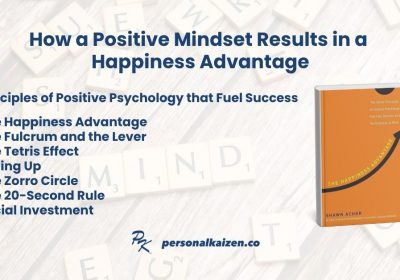Imagine a 4-year-old child sitting down with treats in front of them — one marshmallow on one side of their plate and two on the other side. Beside the child is a bell. The child is asked whether she would prefer one marshmallow or two. Most children say, “Two!”
The adult then says:
“Here’s how we play the game. I am going to leave the room. While I’m gone, if you can wait for me to come back, then you get two marshmallows. If you don’t want to wait, ring the bell, but then you get one marshmallow, not two.”
Here is some adorable footage of kids participating in the marshmallow experiment.
The Stanford Marshmallow Experiment
The Stanford marshmallow experiment was a study on delayed gratification conducted in the late 1960s by psychologist Walter Mischel. In the experiment, a child was offered a choice between one small but immediate reward (a sugary marshmallow), or two small rewards if they waited for a period of 15 minutes. The results showed that children who were able to delay gratification and wait for the two rewards tended to be more successful in life, as measured by factors such as academic achievement, SAT scores, and body mass index.
This classic study in psychology has been replicated many times and shows that children’s ability to delay gratification is not simply a matter of willpower, but is also influenced by factors such as cognitive strategies and environmental cues. The marshmallow experiment provides evidence that self-control is a key factor in success.
Why Delayed Gratification is Beneficial

The concept of personal kaizen is based on small improvements building up over time to make a huge difference in one’s life. This is due to the Compound Effect, the math proving that small investments repeated over time will continue to grow and grow.
I recently saw this great beer koozie on a podcast from the Money Guy show. The host states that “every dollar that a twenty-year-old invests has the potential to become $88 at retirement.” This koozie is a great reminder for any college student to delay just a little gratification!
Life Lessons from the Marshmallow Experiment
Here are a few ways to apply the lessons from Mischel’s marshmallow experiment in your life.

- Define your goals and review them regularly. Keeping the long-term vision in mind will help you see your progress. It is important in the short-term to regularly celebrate the long-term benefits of delaying gratification.
- Improve your self-control by making it easy to make the healthy choice and hard to make the unhealthy choice. For example, go to sleep with your workout clothes nearby so you wake up ready to exercise in the morning. Do not buy junk food so that when you are hungry the only snacks within reach are healthy ones.
- Your emotional state can also influence your ability to delay gratification. If you are feeling tired, stressed, or anxious, it will be more difficult to wait for something. We recently shared ways to manage your energy, not your time.
- The environment can also influence your ability to delay gratification. If you are in a situation where there are a lot of distractions, it will be more difficult to resist temptation.
- It is important to find ways to reward yourself for your delayed gratification. Celebrating your success will help you stay motivated and make it more likely that you will continue to delay gratification in the future. It is okay to occasionally cave into temptation; the important thing is to learn from your mistakes and try to do better next time.
Does Low Willpower Lead to a Bad Life?
The marshmallow experiment is just one study. There are many other factors that contribute to success in life, so don’t get too hung up on the results. For example, kids who are diagnosed with attention deficit hyperactivity disorder (ADHD) are going to struggle with the self-control and patience needed to pass this test. Choosing to ring the bell and settle for one marshmallow does not guarantee that you are going to have a worse life.
On the other hand, strong willpower and self-control will benefit everyone. Delayed gratification is not always easy, but it is worth it.
When you are able to delay gratification, you are more likely to achieve your goals and live a fulfilling life. Use the simple strategies from this post for personal kaizen and continue to improve!




